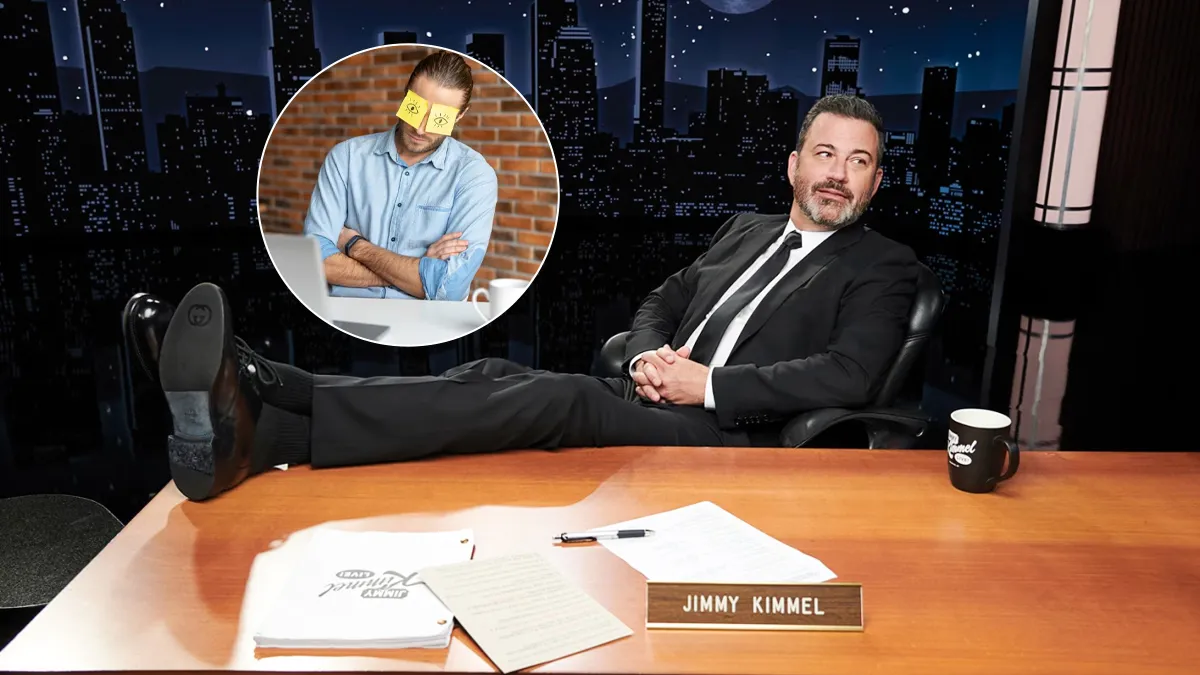
Jimmy Kimmel returned to his late-night stage Tuesday night, and his opening monologue wasn’t just about jokes. It touched on how his suspension ignited a national debate over free speech. Yet behind the spotlight, Kimmel has also long spoken about a very personal health struggle: narcolepsy. He has openly shared how this condition causes sudden daytime sleep attacks, often when least expected. Narcolepsy is a neurological disorder in which the brain loses its usual control over sleep and wake cycles, and many of its symptoms remain hidden or misunderstood.
Table of Content:-
Jimmy Kimmel’s Experience With Narcolepsy![jimmy kimmel narcolepsy 1 - 2025-09-24T131021.965]()
Kimmel has spoken candidly about his experience. He once admitted that he can fall asleep anywhere, even in the middle of the day. “People think I’m just lazy, but it’s narcolepsy,” he joked in an interview. He explained that he manages the condition with medical guidance and lifestyle adjustments, but the fatigue can still hit without warning. His openness has helped bring awareness to narcolepsy, a condition many people might not recognise in themselves.
What Is Narcolepsy and What Does It Really Means![narcolepsy 2 - 2025-09-24T131020.585]()
Narcolepsy is a chronic neurological disorder where the brain cannot properly regulate sleep-wake transitions. Dr Pavan Pai, Consultant Interventional Neurologist, Wockhardt Hospitals, Mumbai, explains, “it often results from a loss of brain cells (hypocretin neurons) that help regulate wakefulness. Genetic, immune or environmental factors may contribute.”
People with narcolepsy often feel overwhelming daytime sleepiness, even after a full night’s rest. Some experience cataplexy, sudden muscle weakness triggered by strong emotions like laughter or surprise. Others may suffer sleep paralysis (temporary inability to move when waking or falling asleep) and hallucinations associated with sleep transitions. Because some signs like fatigue or occasional dozing resemble normal tiredness, narcolepsy often goes unrecognised for years.
Dr Pai points out that daytime sleepiness is not just “being tired.” “If you find yourself nodding off during meetings, driving, or regular activities, that’s a red flag,” he says. “In addition to sleepiness, look for cataplexy (muscle weakness), vivid hallucinations at sleep onset or upon waking, disturbed night sleep, and sleep paralysis.”
The expert also notes that “many patients go years before diagnosis, mistaking symptoms for fatigue, depression or busy lifestyle.” He stresses that timely diagnosis is key: “With the right treatment medication, scheduled naps, and sleep hygiene, people with narcolepsy can manage their lives better.”
Recognising the Hidden Signs![narcolepsy symptoms 3 - 2025-09-24T131134.994]()
Because narcolepsy doesn’t always look dramatic, here are some lesser-known warning signs to watch for:
- Frequent, uncontrollable sleep episodes during otherwise active times
- Sudden muscle weakness (cataplexy), often triggered by laughter or surprise
- Hallucinations when falling asleep or waking, like vivid, dreamlike images
- Sleep paralysis is a brief inability to move when falling asleep or waking up.
- Poor or fragmented night sleep (waking often despite being sleepy)
- Difficulty concentrating, lapses in memory, mood swings
- If you or someone you know experiences multiple of these, it’s worth consulting a neurologist or sleep specialist.
What You Can Do: Management & Lifestyle Tips
While narcolepsy has no cure yet, many strategies help:
- Scheduled naps: Short, regular naps during the day can reduce sudden sleep attacks
- Strict sleep hygiene: consistent bedtimes, dark/quiet sleep environment, avoiding caffeine late
- Medication: under specialist guidance, stimulants or wakefulness-promoting drugs help
- Behavioural tools: breaking tasks into shorter segments, pacing, and avoiding monotonous tasks
- Support network: explaining the condition to co-workers, family, or friends helps create understanding and safety
ALSO READ: "I Just Felt Tired All The Time": The Silent Exhaustion Of Aortic Stenosis
Conclusion
Jimmy Kimmel’s return to late-night and his frank discussion of narcolepsy bring needed attention to a disorder many struggle with silently. Sleep attacks don’t always look dramatic, but when they impact daily life, they deserve recognition and care. With awareness, expert support, and proper management, narcolepsy can be addressed so people can continue living fully, dreams and all.
Also watch this video
How we keep this article up to date:
We work with experts and keep a close eye on the latest in health and wellness. Whenever there is a new research or helpful information, we update our articles with accurate and useful advice.
Current Version
Sep 24, 2025 14:48 IST
Published By : Vivek Kumar



